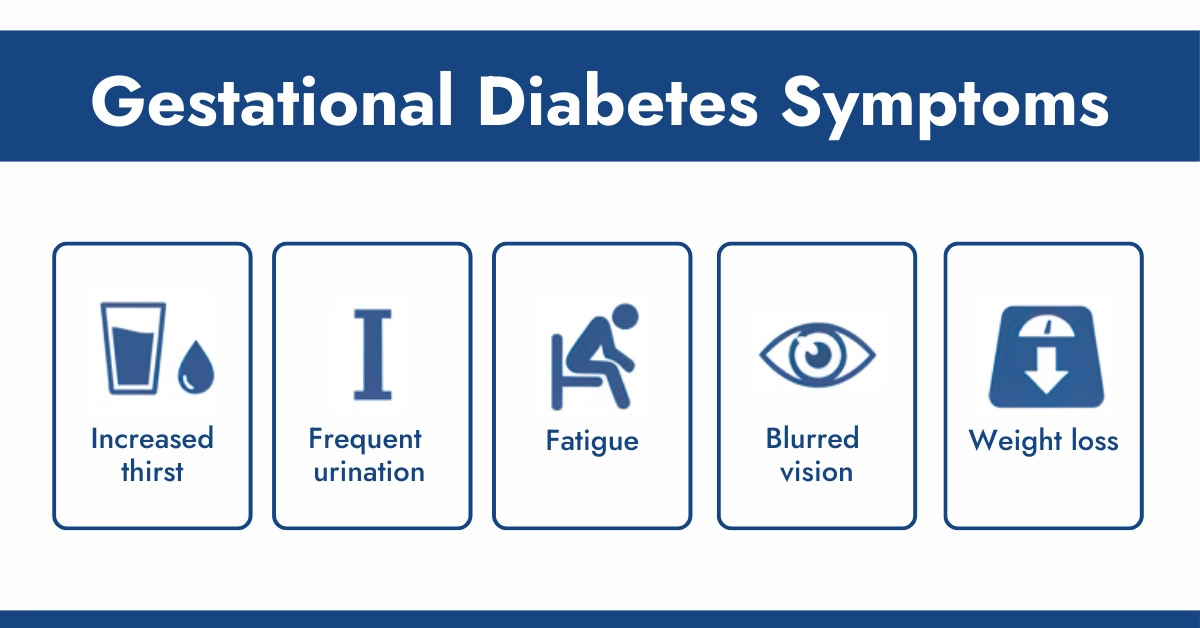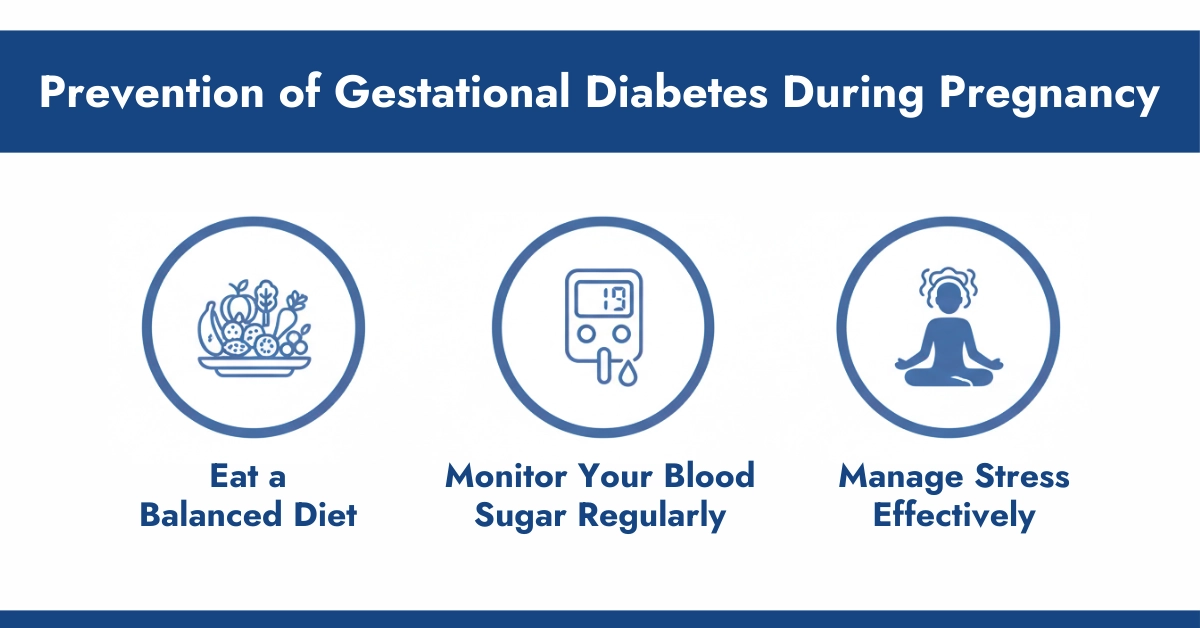Table of content
- Understanding Gestational Diabetes
- What Is Gestational Diabetes?
- Gestational Diabetes Symptoms
- Know Your Risk Factors for GDM
- How Does Coffee Affect Gestational Diabetes (GDM)?
- How to Enjoy Coffee with Gestational Diabetes?
- Prevention of Gestational Diabetes During Pregnancy
- Does Gestational Diabetes Go Away?
- Conclusion:
Yes, you can drink coffee with gestational diabetes, but with moderate caffeine intake (typically less than 200 mg per day, equivalent to about one 12-ounce cup of coffee) is generally considered safe during pregnancy, women with gestational diabetes may need to be more cautious.
Coffee, a popular beverage known for its caffeine content, often becomes a big concern for pregnant women, particularly those diagnosed with gestational diabetes. Caffeine is a stimulant found in coffee that can cross the placenta and reach the developing fetus.
Understanding Gestational Diabetes
If your pregnancy has been complicated by gestational diabetes mellitus (GDM), you’re not alone. According to the CDC (Centers for Disease Control and Prevention), 2% to 10% of US pregnancies are affected by gestational diabetes every year. The good news is that GDM is manageable.
What Is Gestational Diabetes?
Gestational diabetes mellitus (GDM) is a type of diabetes that emerges during pregnancy in women who had no diabetes before. It happens when the body is unable to produce enough insulin to meet the increased needs during pregnancy. If you have Class A1, you can manage your blood sugar through healthy eating and regular diabetic friendly exercise. No medication needed for Class A2.
Gestational Diabetes Symptoms
If you’ve been diagnosed with gestational diabetes, you face hyperglycemia. Normally, a hormone called insulin acts like a key, moving glucose (sugar) from your bloodstream into your cells, where it’s used for energy. During the sixth month (around 20-24 weeks) of pregnancy, your body goes through significant hormonal changes, and these hormones can make your cells less responsive to insulin. This is called insulin resistance, which means your pancreas has to work harder and produce more insulin than usual.
Most pregnant women are able to keep up with this increased demand. But for some women, the pancreas simply can’t produce enough insulin to keep blood sugar levels in a healthy range, and that’s when gestational diabetes develops. This is not your fault. It’s a common pregnancy complication, and with the right support, it can be managed effectively. Here are some common symptoms that
- Increased thirst: Feeling extremely thirsty and needing to drink more fluids than usual.
- Frequent urination: More often urinating, especially at night.
- Fatigue: Usually tired, even after getting enough rest.
- Blurred vision: You may experience blurry vision due to changes in blood sugar levels.
- Weight loss despite increased appetite: This can occur in some cases due to the body’s inability to use glucose effectively.
If you have already been diagnosed with Gestational Diabetes, you may opt for a Freestyle Libre 3 that has already been cleared for use during pregnancy. This device is available in CGM Monitors’ inventory.

Know Your Risk Factors for GDM
Common risk factors include being overweight or obese before or during pregnancy, having prediabetes, having a close family member with diabetes, or having had gestational diabetes in a previous pregnancy
If any of these apply to you, know that awareness is your first step toward better health for both you and your baby.
How Does Coffee Affect Gestational Diabetes (GDM)?
Raise and prolong High Blood Sugar
Caffeine has been shown to increase blood sugar levels and slow how quickly they return to normal something you’re already working hard to manage every day.
Raise your Blood Pressure
Gestational diabetes already puts you at a higher risk for elevated blood pressure. Caffeine can add to that pressure, so it’s worth keeping your intake in check.
Trigger more Cortisol
Higher cortisol (the body’s stress hormone) means more insulin resistance, which directly works against your efforts to keep your blood sugar stable.
How to Enjoy Coffee with Gestational Diabetes?
Here’s how to make your coffee work better for your blood sugar:
Coffee with Little or No Added Sugar
Added sugars are one of the fastest ways to spike your blood sugar, so they’re best avoided. Stick to black coffee, or add plain milk or an unsweetened milk alternative like unsweetened almond milk.
Sweeten Smartly
If you need a little sweetness, non-nutritive sweeteners like stevia or monk fruit won’t impact your blood sugar and are generally considered safe options during pregnancy.
Prevention of Gestational Diabetes During Pregnancy
Being pregnant is one of the most beautiful experiences of your life, but it also comes with responsibilities that directly affect both your health and your baby’s well-being. Small, consistent changes to your daily habits, from what you eat to how you move, can make a meaningful difference in keeping your blood sugar levels in a healthy range throughout your pregnancy. The good news is that there are real, practical steps you can take to lower your risk level that are discussed below:
Eat a Balanced Diet
Healthcare providers often advise pregnant women with gestational diabetes to monitor their caffeine intake along with their overall diet and lifestyle choices. Moderation and balance are key principles in managing gestational diabetes effectively.
Do you know? CGM devices help you monitor your glucose levels 24/7 and it’s super easy to buy them using your insurance.
Focus on whole, nutrient-rich foods like vegetables, lean proteins, whole grains, and healthy fats. Limit processed foods, sugary snacks, and refined carbohydrates like white bread and pasta, as these can cause rapid spikes in your blood sugar.
Eating smaller, more frequent meals throughout the day can also help keep your glucose levels steady and your energy up.
Monitor Your Blood Sugar Regularly
Even before a formal diagnosis, keeping an eye on your blood sugar levels helps you catch any early warning signs. Tools like a Continuous Glucose Monitor (CGM), such as the Dexcom G7, make tracking your glucose levels simple by giving you real-time insights so you can make adjustments before small changes become bigger problems.
Manage Stress Effectively
High stress levels trigger the release of cortisol, a hormone that increases insulin resistance and can raise your blood sugar levels. Finding healthy ways to manage stress, meditation, deep breathing, or simply resting when your body needs it can play a meaningful role in keeping your glucose levels in check during pregnancy.

Does Gestational Diabetes Go Away?
Yes, for most women, gestational diabetes does go away shortly after delivery. Once your baby is born, the hormonal changes that caused your body to become insulin resistant during pregnancy typically resolve on their own, and your blood sugar levels return to normal. You’ve worked hard to manage your glucose level with CGM devices (Libre 3 Plus) throughout your pregnancy, and in most cases, that hard work pays off the moment your little one arrives.
Conclusion:
Managing gestational diabetes is a journey, and the choices you make each day truly matter. While an occasional coffee may be manageable for some, being mindful of how caffeine affects your blood sugar, blood pressure, and cortisol levels can make a real difference in how well you manage your GDM. Stay in touch with your healthcare professionals to create a plan that fits your needs and stay consistent with monitoring your glucose levels. The tools like the Dexcom G7 CGM can make that easier than ever, and know that with the right support and small, smart choices, both you and your baby can thrive. Gestational diabetes is manageable, and you are more than capable of managing it.
Frequently Asked Questions
Can You Drink Coffee with Gestational Diabetes?
How Does Coffee Affect Blood Sugar Levels in Gestational Diabetes?
Coffee’s main component, caffeine, can have mixed effects. Different studies on PubMed show that high caffeine intake may temporarily reduce insulin sensitivity. It leads to higher blood sugar levels after meals in women with GDM. However, moderate consumption often shows no significant negative impact and may even be associated with lower glucose levels or better cardiometabolic profiles.
How Can I Safely Drink Coffee with Gestational Diabetes?
Yes, you can drink coffee safely in moderation. Stick to no more than 200 mg of caffeine per day. This equals about 1–2 cups of brewed coffee (depending on strength). Opt for black coffee or add low-carb and low-sugar additions. Pair it with a balanced meal or diabetes-friendly snacks containing protein and fiber to help stabilize blood sugar. Track your post-coffee readings with Dexcom G7 and discuss with your doctor or dietitian.
How Do I Monitor My Blood Sugar After Drinking Coffee with Gestational Diabetes?
Follow your usual monitoring schedule with FreeStyle Libre 3 plus as prescribed (often fasting and 1–2 hours after meals). Test 1–2 hours after drinking coffee, especially if it’s part of a meal or with additions like sugar. Note the timing, amount, and any additives in your log. If you notice spikes consistently after coffee, reduce intake or switch to decaf. Regular monitoring with CGMs help identify personal patterns.
What Is the Recommended Coffee Intake for Someone with Gestational Diabetes?
The same as for general pregnancy: limit caffeine to under 200 mg per day. This typically means 1–2 small cups (8 oz each) of brewed coffee (about 95 mg per cup). It is suggested low-to-moderate intake (e.g., up to 100 mg/day) may even link to lower GDM risks in certain contexts, but do not exceed the recommended guidelines.
What Are the Risks of Drinking Too Much Coffee with Gestational Diabetes?
Excessive caffeine (>200 mg/day) may weaken insulin sensitivity, prolong hyperglycemia, raise blood pressure, or increase cortisol levels. High coffee intake could make glucose harder to control and potentially heighten risks like hypertension or other cardiovascular diseases.
Why Does Caffeine Impact Insulin Sensitivity in Pregnancy?
Pregnancy naturally increases insulin resistance to support fetal growth. Caffeine can further reduce insulin sensitivity by affecting how cells respond to insulin, leading to higher blood glucose in some cases. Studies of NCBI show acute caffeine can decrease insulin sensitivity by ~18% in some GDM cases.
When Is the Best Time of Day to Drink Coffee If I Have Gestational Diabetes?
There’s no universal “best” time, but many find morning or early day works well, paired with breakfast (protein + fibre) to trigger any potential spike. Avoid large amounts close to meals/tests or late in the day to prevent sleep issues. [/vc_toggle
How Common Is Gestational Diabetes?
GDM affects about 1 in 6–10 pregnancies globally, with rates varying by region and screening. In the US, it rose from ~6% in 2016 to ~8.3% in 2021 among births, increasing with maternal age. Rates are elevated in Asian Indian groups. Overall prevalence of hyperglycemia in pregnancy impacts ~1 in 6 live births.
What to Eat with Gestational Diabetes?
Focus on balanced, carb-controlled meals:
– Non-starchy vegetables (e.g., spinach, broccoli, peppers)
– Lean proteins (e.g., chicken, fish, eggs, tofu, beans)
– Healthy fats (e.g., avocado, nuts, olive oil)
– Complex carbs in moderation (e.g., whole grains like brown rice/quinoa, whole fruits, starchy veggies like sweet potatoes)
Eat 3 meals + snacks daily, spacing carbs evenly. Use the plate method: half veggies, quarter protein, quarter carbs. Avoid sugary foods/drinks; prioritize fiber-rich options to stabilize blood sugar.
What to Eat Before Gestational Diabetes Test?
For the 1-hour glucose screening (no fasting required), eat a balanced meal 1–2 hours before with complex carbs, protein, and fiber. Avoid high-sugar/refined carbs bakery products that could spike results falsely. Stay hydrated with water.
What Coffee Is Best for Gestational Diabetes?
Black coffee or plain brewed is ideal because of minimal carbs. If adding anything, choose low/no-sugar options. Avoid sugary lattes, flavored coffees, or high-carb add-ins. Decaf may suit if caffeine sensitivity is an issue












Write a comment
Your email address will not be published. All fields are required